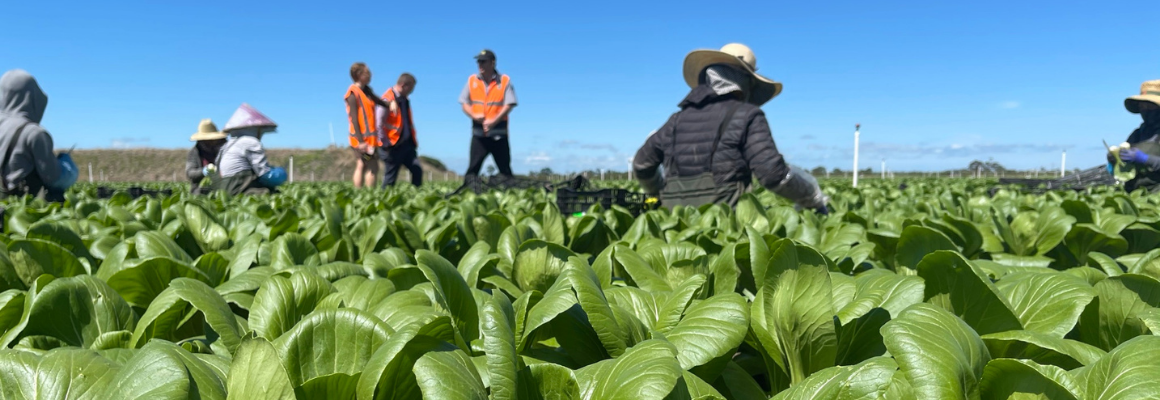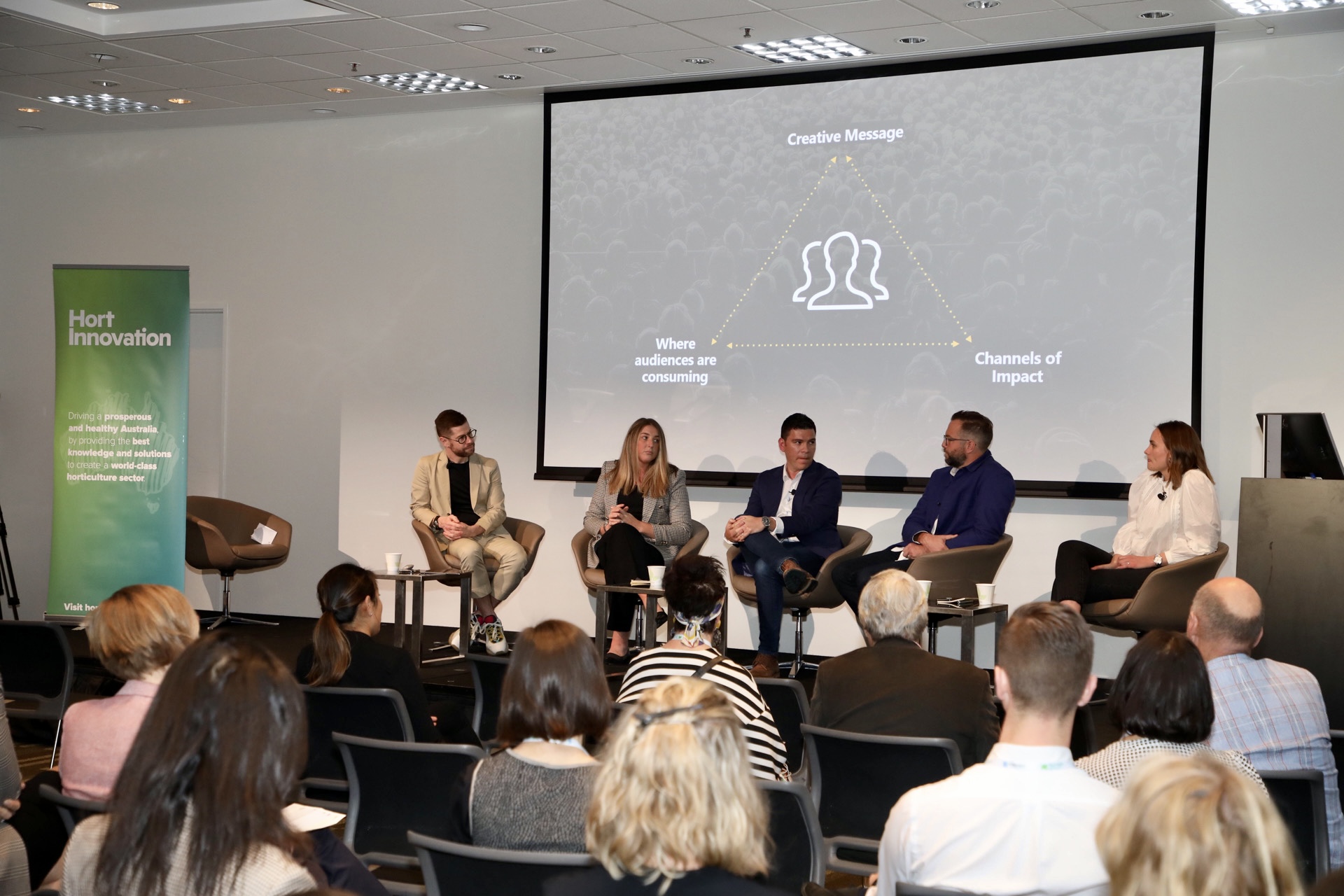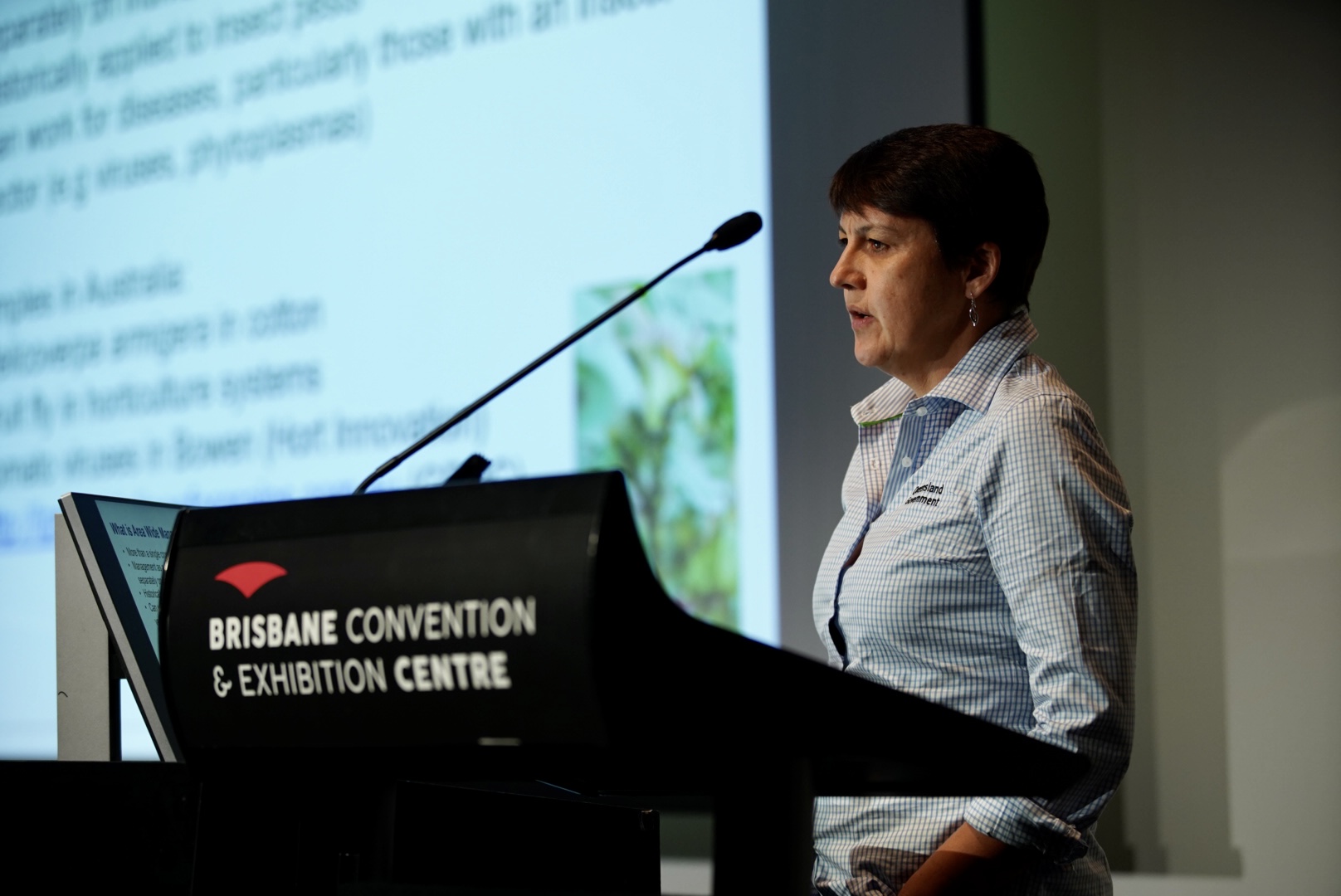
Labour mobility program reforms to reduce red tape for growers to access critical farm workers under SWP and PLS
14 September 2021
Focus on building strong category brands
14 September 2021Outside of COVID-related factors, plant pests and diseases continue to be one of the biggest challenges for vegetable growers. Headlining these pest concerns are fall armyworm and serpentine leafminer, and they were on the agenda when the Department of Agriculture and Fisheries, Queensland panel presented its session entitled Advanced Crop protection: Feeding people not pests. Jil Hogan reports.
Fall armyworm
Fall armyworm (FAW) was first discovered in Australia in early 2020, and it quickly spread across northern and eastern Australia. FAW is highly invasive and destructive, with very fast generation time, and the adults can fly long distances and migrate quickly.
Research is currently underway to determine the most appropriate management approaches under Australian conditions. Speaking to delegates at Hort Connections 2021, senior entomologist Dr Ian Newton from the Department of Agriculture and Fisheries, Queensland (DAF, QLD) said one of the biggest challenges with FAW is the issue of resistance, with few non-chemical options available.
“It’s coming from overseas and it’s pre-packaged with resistance to most of the older chemicals. The newer chemicals are still effective on it and work quite well,” Dr Newton said.
“But there are very few of those options, and if these chemicals get used too much then it will develop resistance to those as well. So, there are actually very few non-chemical alternative options available.”
DAF, QLD is currently assessing the performance of a number of Nuclear Polyhedrosis Viruses (NPVs) under local conditions, and together with the Australian Centre for International Agricultural Research, is trialling a number of fungal-based biopesticides on FAW.
Serpentine leaf miner
Similar to FAW, serpentine leaf miner (SLM) was first discovered in Australia in early 2020. It was initially found in New South Wales before spreading to Queensland. The pest has a huge host range and can cause enormous amounts of damage, including leaf stippling, severe defoliation, reduction in crop quality and reduction of yield.
So far, certain insecticides have been used to manage the pest in Australia, but DAF, QLF panellist John Duff said these can have a serious impact on beneficial insects known to attack and keep SLM in check.
“Unfortunately, there’s been a mad rush to look at chemical control. A lot of products that are currently being used are very disruptive,” Mr Duff said.
“There are a lot of beneficial insects out there that can manage this pest. In Queensland, we’ve found up to 10 [beneficial insects]. So, there are a lot of natural enemies out there that can control this pest.”
Using area wide management
An alternative method of managing the pests is through area wide management (AWM). Historically AWM has been applied to insect pests, but Dr Cherie Gambley said it can also work well for managing other diseases like viruses and phytoplasmas, as well as pests that can fly such as FAW and SLM.
Dr Gambley leads the project Area Wide Management of Vegetable Diseases: viruses and bacteria (VG16086), which is a strategic levy investment under the Hort Innovation Vegetable Fund. She said that by using a non-coordinated approach to AWM, chemicals can be used strategically to not drive insecticide resistance and protect post-genetics.
“For growers, [AWM gives] improved protection against your losses in crop failure. For the chemical companies, you’re getting extended commercial life products. For the seed companies, you’re also getting improved protection of those resistance genes, and an opportunity to continue the use of non-resistant varieties if the pests and diseases are managed well,” Dr Gambley explained.
“For retailers, it’s enhanced security products supply for both volume and consistent quality. And for consumers, it’s reduced product price volatility through a supply and consistent quality product.”
To successfully implement area-wide management, Dr Gambley said monitoring is absolutely critical to capture baseline data, and measure if the approach is working or not.
Please click here to read a full update on the area wide management project.
Find out more
Presentations from the 2021 Annual Vegetable Industry Seminar are available to watch on the Hort Connections website.
Watch the advanced crop protection presentation at Hort Connections 2021 below featuring:
Ian Layden, Department of Agriculture and Fisheries, Queensland – Moderator
Dr Cherie Gambley, Department of Agriculture and Fisheries, Queensland – Speaker
Dr Siva Subramaniam, Department of Agriculture and Fisheries, Queensland – Speaker
Dr Ian Newton, Department of Agriculture and Fisheries, Queensland – Speaker
John Duff, Department of Agriculture and Fisheries, Queensland – Speaker
The 2021 Annual Vegetable Industry Seminar is a strategic levy investment under the Hort Innovation Vegetable Fund.
This project has been funded by Hort Innovation using the vegetable research and development levy and contributions from the Australian Government.
Project Number: VG20000
Cover image: Dr Cherie Gambley presents at Hort Connections. Photography by Andrew Beveridge.

